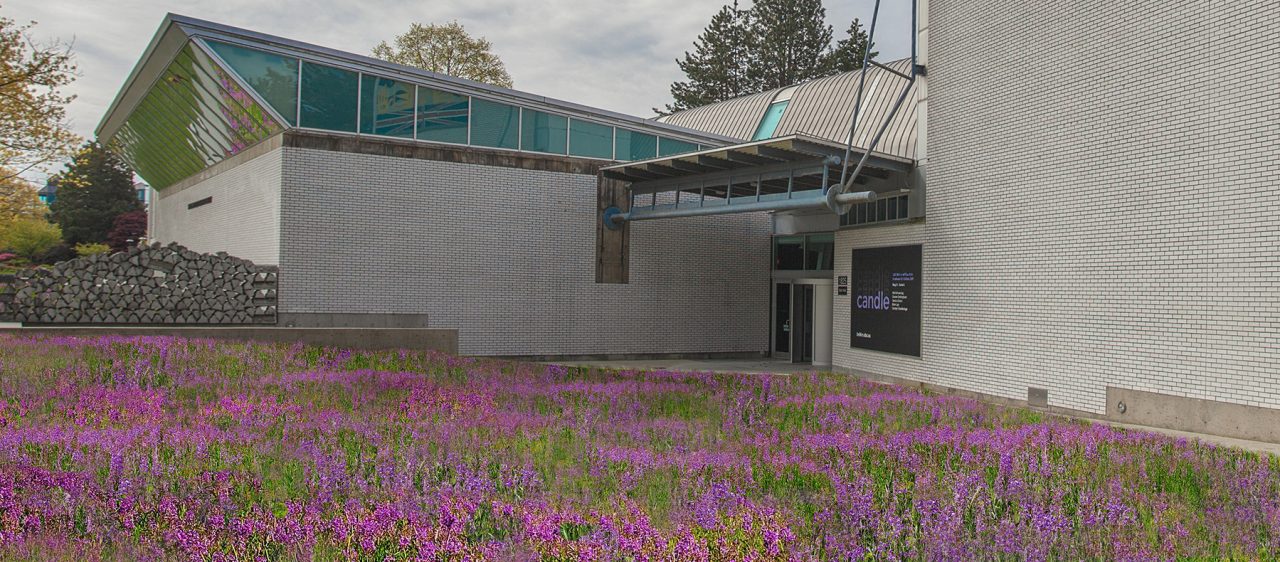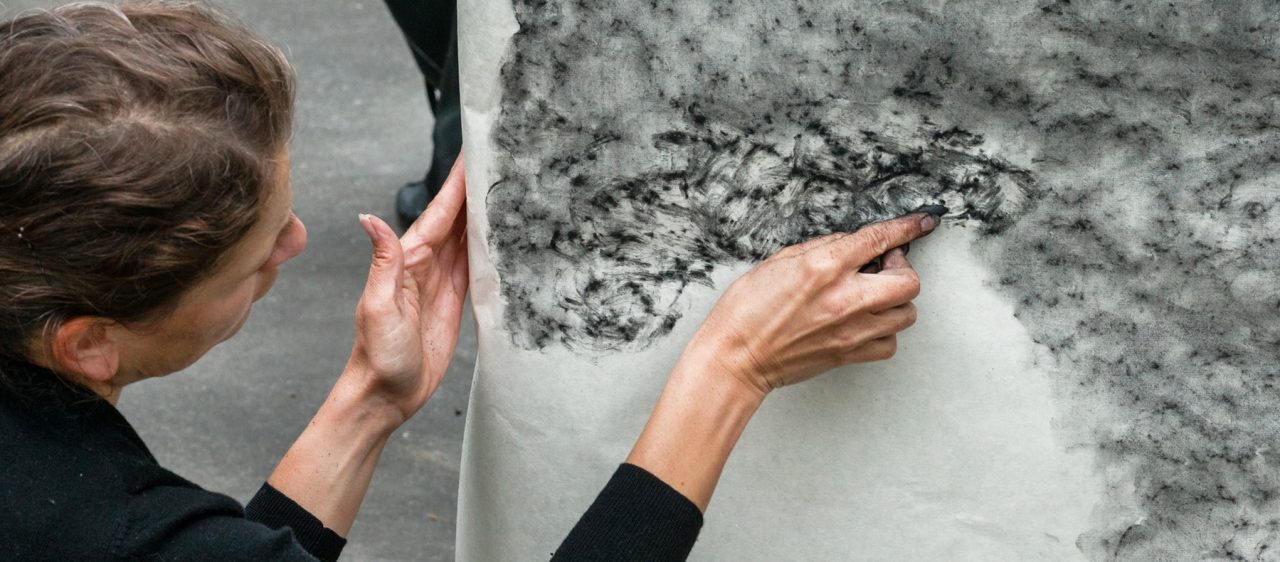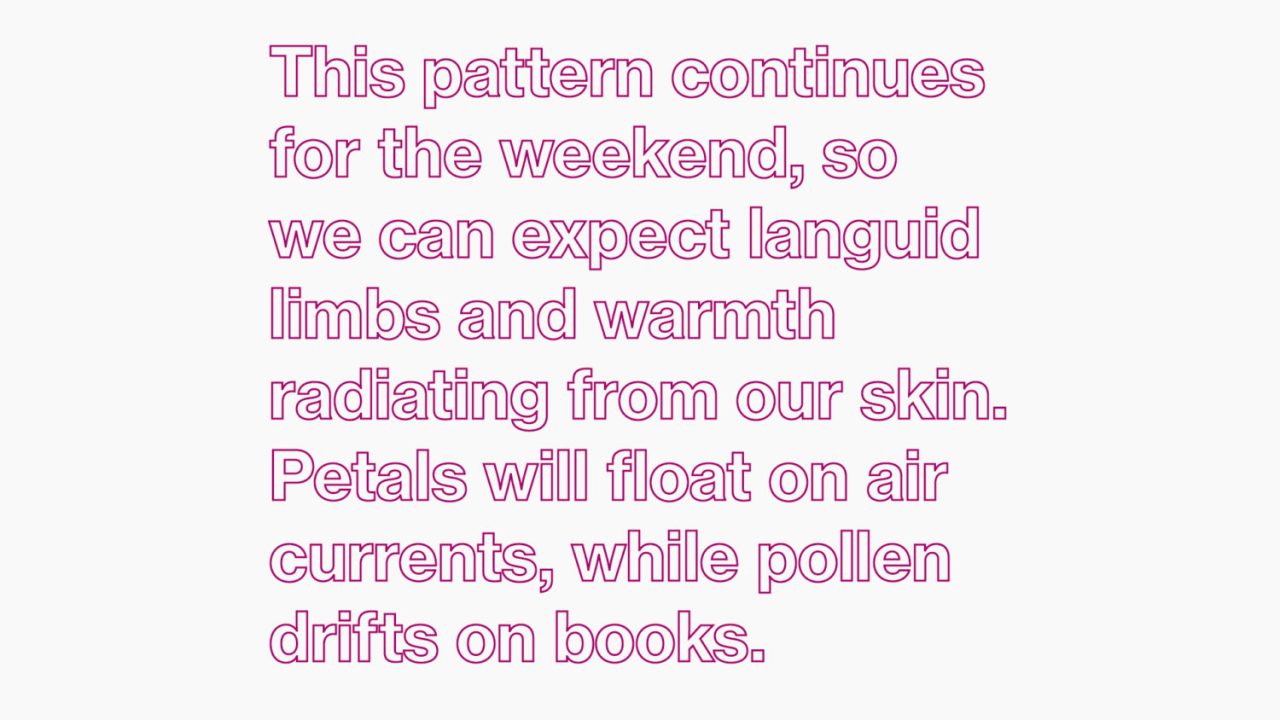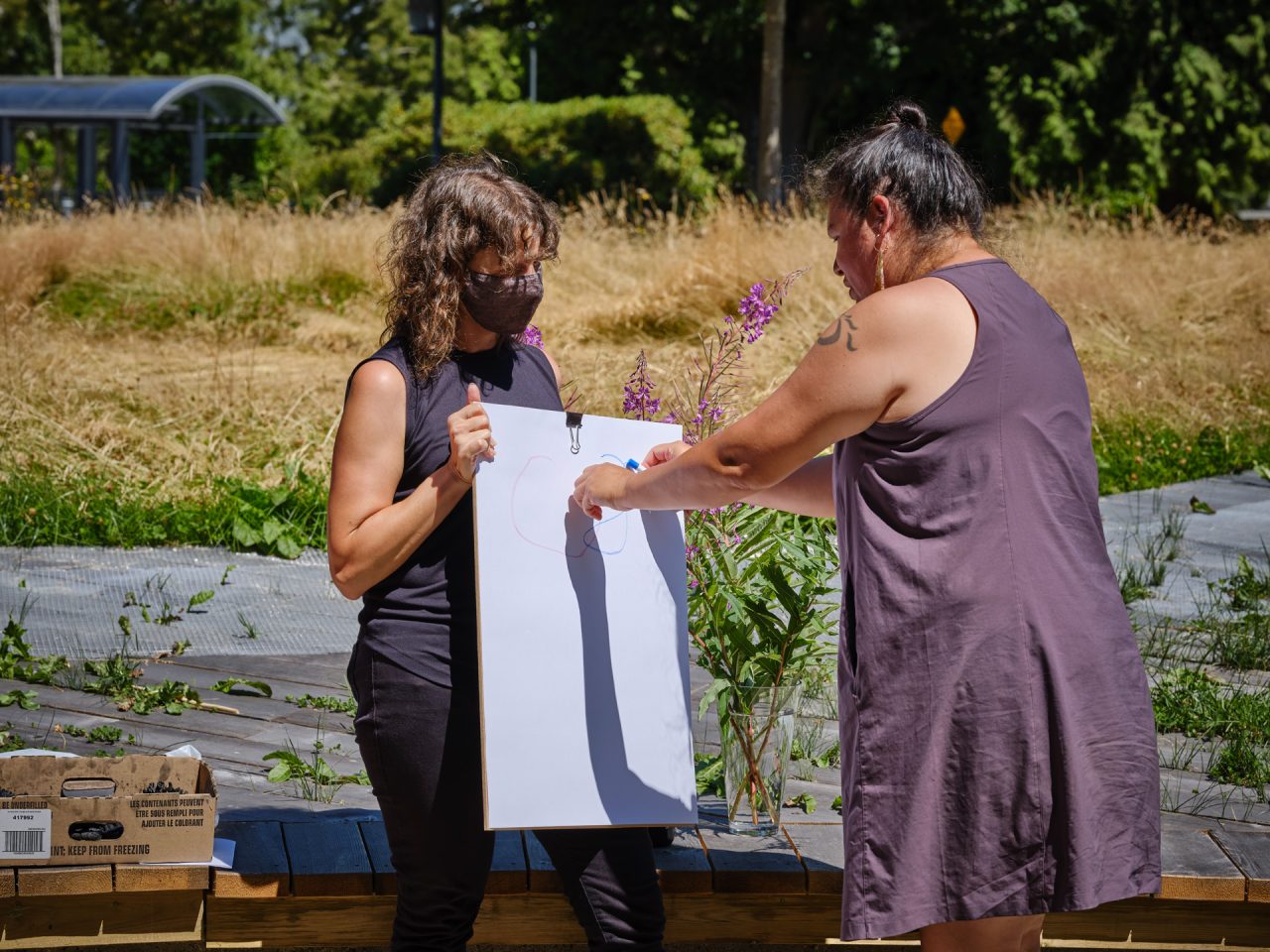17 Mar 2023
Reading Room: Holly Schmidt, Vegetal Encounters
Introduction
This reading room is intended to offer diverse perspectives relating to and exceeding the slow, educational, creative and embodied lessons of plant life explored throughout Holly Schmidt’s Outdoor Art residency, Vegetal Encounters.
Resources
Chatzidakis, Andreas, Jamie Hakim, Jo Littler, Catherine Rottenberg, Lynne Segal and The Care Collective. The Care Manifesto: The Politics of Interdependence. London: Verso Books, 2020.
The Care Collective is a reading group who put forward the radical notion that it is care, rather than neoliberalism, that must inform the structuring principles of relationships, whether at the level of the individual, the community, or the state. The Care Collective argue that it is imperative that we begin to look beyond our individual interests, and those of our closest kin, and practice what they term “promiscuous care”: the unrestricted extension of care to our friends, neighbours, communities, and, more broadly, to those who are most often marginalized by the inadequacies of our current infrastructures of care.
De la Bellacasa, María Puig. Matters of Care: Speculative Ethics in More than Human Worlds. Minneapolis: University of Minnesota Press, 2017.
In this book, María Puig De la Bellacasa challenges human-centric notions of “care” to consider how the more-than-human world participates in these ethical and political obligations. Weaving together feminist discourses in science and technology studies, as well as experiential notions of care in naturecultures, De la Bellacasa looks to recognize the vital and expansive possibilities that come with re-imaging ethico-political responsibilities within human and more-than-human relations.
Ghosh, Amitav. The Nutmeg’s Curse: Parables for a Planet in Crisis. Chicago: University of Chicago Press, 2021.
Amitav Ghosh argues that western colonialism’s practices of natural extraction and exploitation are a central catalyst for our current climate crises. Accordingly, Ghosh also looks to identify the agency of the non-human realm in shaping human history and as a vehicle of meaning-making. To illustrate this, Ghosh centers the natural and human-disturbed journey of nutmeg as a parable for the seemingly invisible relationship between the human and non-human. Through turning a critical eye onto the story of nutmeg, Ghosh demonstrates how human life is shaped by non-human forces, while connecting our shared colonial histories to the ongoing legacies of colonial violence that are still felt and perpetuated today.
Kimmerer, Robin Wall. Braiding Sweetgrass: Indigenous Wisdom, Scientific Knowledge, and the Teachings of Plants. Minneapolis: Milkweed Editions, 2020.
Braiding Sweetgrass has become a touchstone for readers looking to deepen their understanding of the natural world in a way that is careful and compassionate. Kimmerer’s identity as a member of the Citizen Potawatomi Nation, as well as her training as a biologist, come together in this account that is part autobiography, part love letter to the ecosystems, and part call to action. Here, Kimmerer marries traditional Indigenous ways of knowing and her practice as a scientist trained in the western academy in a series of vignettes detailing her encounters with the natural world, and the lessons that plants have taught her throughout her life. She asks her readers to consider these gifts as the beginnings of a set of intimate relations, through which we can cultivate a sense of mutual responsibility.
Kimmerer, Robin Wall. Gathering Moss: A Natural and Cultural History of Mosses. Corvallis, OR: Oregon State University Press, 2003.
This book builds a dialogue between the seemingly objective scientific language of plants and Kimmerer’s own subjective knowledge of the more-than-human to present an entangled story of moss. As a biologist and member of the Potawatomi Nation, Kimmerer demonstrates how various aspects of her knowledge intersect and often overlap, thus merging these ways of knowing to articulate a full and intricate story of moss. Through providing these entryways, Kimmerer recognizes the potential for collaborative understandings, while inviting readers to take up an intimate relationship with the landscape.
Pujol, Ernesto. Walking Art Practice: Reflections on Socially Engaged Paths. Chicago: Triarchy Press, 2018.
Directed to an audience of artists, art students or “anyone who loves to step outside,” Walking Art Practice is intended to act as a guide, manifesto and performative walking manual. Chronicling his experiences as a former monk, performance artist, social choreographer, and educator, Ernesto Pujol composes this book with 68 reflections that interrogate western post-industrial society’s turn away from walking. Instead, Pujol recognizes how artists are choosing to walk in defiance of these turns in cultural thinking and practice, and conceptualizes walking as a socially engaged public performance practice.
Simard, Suzanne. Finding the Mother Tree: Discovering the Wisdom of the Forest. Toronto: Penguin Random House Canada, 2022.
Suzanne Simard’s book broadens the ways in which ecosystems have been traditionally understood. Drawing on decades of research, as well as her experiences “on the ground” as a forestry worker, she combines autobiography and science writing to articulate that the trees, other plants and fungi in an ecosystem are closely connected to one another, and depend on one another for their survival.
Todd, Zoe. “Indigenizing the Anthropocene.” In Art in the Anthropocene: Encounters among Aesthetics, Politics, Environments and Epistemologies, edited by Heather Davis and Etienne Turpin, 241-54. London, UK: Open Humanities Press, 2015.
Métis anthropologist, educator and artist Zoe Todd wrote this essay to interrogate and dismantle the gentrifying, colonial and heteropatriarchal structures that shape current Anthropocentric discourses. Instead, as part of a collection of essays on art and the Anthropocene, Todd’s contribution proposes that in order for an effective art or dialogue around the Anthropocene to take place, it must directly engage with the structural violences that it has previously enacted.
Tsing, Anna Lowenhaupt. The Mushroom at the End of the World: On the Possibility of Life in Capitalist Ruins. Princeton, NJ: Princeton University Press, 2015.
Tsing’s book highlights the instability of existence through interrogating the commerce and unpredictable ecological life of matsutake mushrooms. Through tracking the matsutake, one of the most valuable mushrooms in the world, Tsing breaks down presumptions of stability and progress that permeate capitalist and modernist ideologies. As each chapter follows Tsing’s travels and encounters with mushrooms across various geographies, she looks to disrupt illusions of a stable and predictable worldly trajectory.
Turner, Nancy J. The Earth’s Blanket: Traditional Teachings for Sustainable Living. Vancouver: Douglas & McIntyre, 2007.
This book by ethnobotanist Nancy Turner, responds to Turner’s own anxieties surrounding environmental crises by searching for a more mindful way to live in relation to the environment. Including perspectives and teachings from a variety of advisers spanning various Indigenous nations, Turner looks to offer an insightful, intricate and abundant look into how various Indigenous knowledges and customs of relating to the environment provide alternative ways for society to perceive and be in relation with the Earth.
Photo (above): Rachel Topham Photography
Related
-
Event
2021-24
Holly Schmidt: Fireweed Fields

Fireweed Fields transforms a UBC lawn site into a fireweed meadow, encouraging increased biodiversity through gradual succession as a metaphor for the resurgence of life after a crisis. This installation acknowledges the global climate emergency: by tearing through the fabric of maintained lawns and colonial ideals, it plants the initial seeds for change and catalyzes dialogue, creative experimentation, and new biodiversity research and learning opportunities.
[more] -
Exhibition
January 2019 – April 2024
Holly Schmidt: Vegetal Encounters Residency

Vegetal Encounters is Holly Schmidt’s three-year residency with the Outdoor Art Program at UBC. Through this residency, Schmidt has been creatively engaging with plant life as a significant source of life, connection and learning.
[more] -
Event
1-6 June 2019
Holly Schmidt’s Forecast at the Audain Centre
 [more]
[more] -
Event
Sat 24 July 2021, Upcoming in Sep 2021
Drawing in the Meadow: Workshop with Chrystal Sparrow and Holly Schmidt
 [more]
[more]